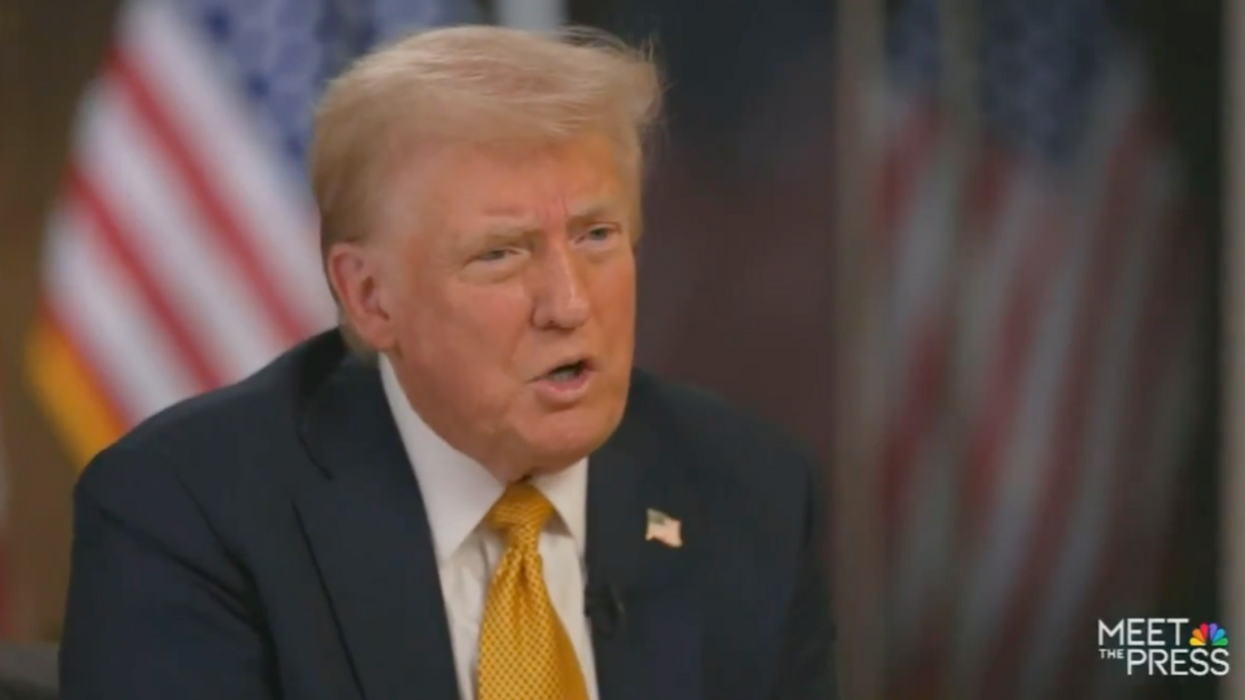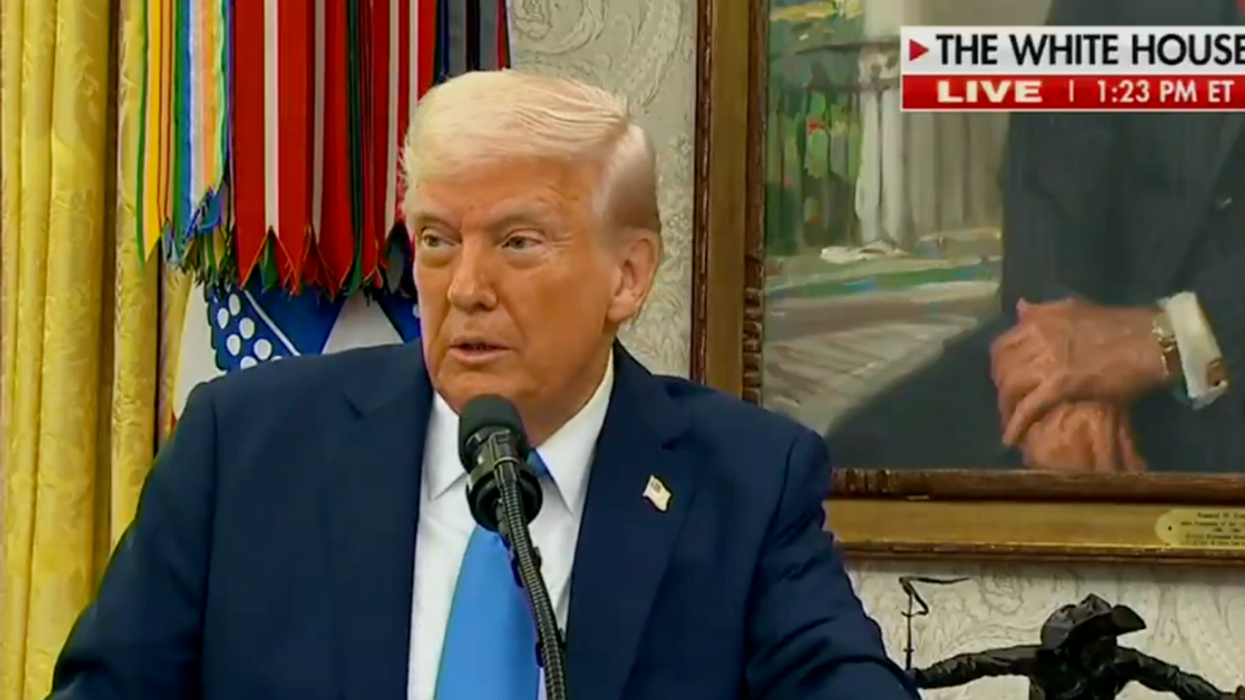President-elect Donald Trump was dragged after claiming he "started using" the word "groceries" during the election—before asking, "Who uses the word?"
Trump, in an interview with Meet the Press host Kristen Welker, emphasized the soaring grocery prices affecting millions of Americans as a pivotal factor in his victory over Vice President Kamala Harris in the race for the White House.
But then things got weird.
He said:
"I won on two things: The border and more than immigration. They like to say immigration. I break it down more to the border but I won on the border and I won on groceries."
"Very simple word, groceries. Like almost – you know, who uses the word? I started using the word – the groceries. When you buy apples, when you buy bacon, when you buy eggs, they would double and triple the price over a short period of time, and I won an election based on that."
"We're going to bring those prices way down."
You can hear what he said in the video below.
He was swiftly mocked.
Grocery prices could get much higher during the second Trump administration if Trump follows through with plans to impose hefty tariffs.
In a separate comment to Welker, he falsely claimed that tariffs "cost Americans nothing." However, the overwhelming majority of credentialed economists reject the notion that tariffs provide a net benefit.
Most argue that consumers in the country imposing the tariffs ultimately bear the cost, facing higher prices for imported goods and for domestic products made with foreign-sourced raw materials. Additionally, if the targeted country retaliates with its own tariffs on U.S. goods, American producers can see a decline in exports.
If fully implemented, North American tariffs could significantly impact household expenses. For example, Mexico supplied 69% of U.S. vegetable imports and 51% of fresh fruit imports in 2022, meaning grocery prices could rise sharply. New tariffs on Canada might also increase gasoline prices, particularly in the upper Midwest, which depends heavily on Canadian crude oil.








 @PreetBharara/X
@PreetBharara/X @RepBrendanBoyle/X
@RepBrendanBoyle/X @twesq/Bluesky
@twesq/Bluesky @christopherharris/Bluesky
@christopherharris/Bluesky @evangelinewarren/X
@evangelinewarren/X






 @FrankC164/X
@FrankC164/X
 AMC
AMC